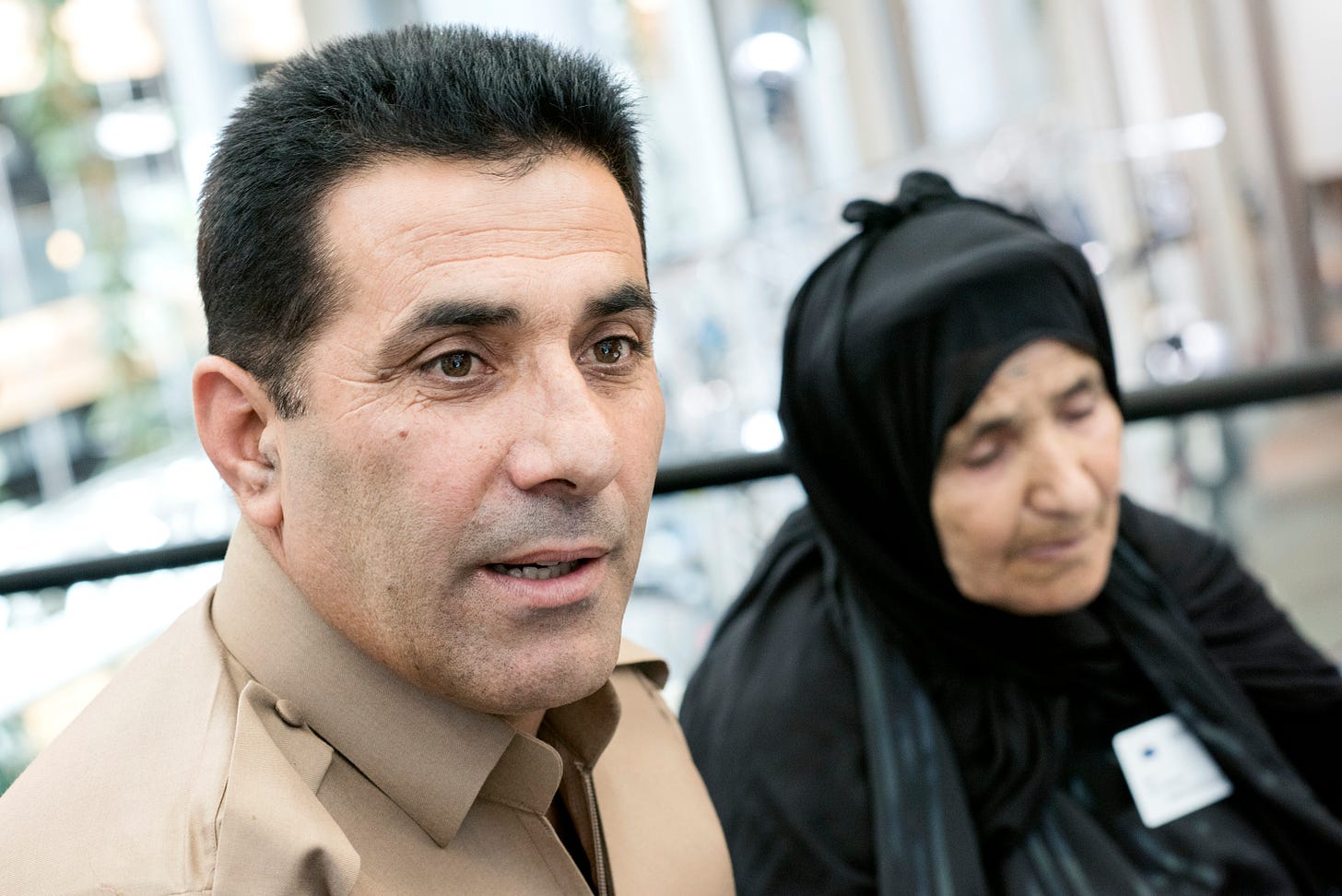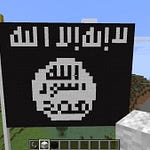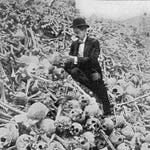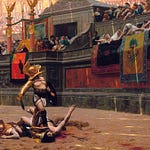The photo at the top of this podcast episode is of Yazidis calling on the world to bear witnness to the crimes of the Islamic State. It’s important context for today’s episode and I want to share a little of the caption from the Flickr page of the photo.
Killed, enslaved, forced to flee: Iraq’s Yazidi minority has found itself on the receiving end of Islamic State (IS) ever since the jihadist organisation started conquering territory in Syria and Iraq. Representatives of the Yazidis made a plea for support during a meeting with Parliament President Martin Schulz. Vian Dakhil, the only Yazidi Kurd member of Iraq's parliament, told him: "We seek help in releasing the 5,000 Yazidi women, elderly men and children who have been kidnapped by IS."
Some of the Yazidis visiting Schulz in Strasbourg on 29 April had first-hand experience of the atrocities. Dilyar Saeed witnessed how last year Islamic State took over her village in the Sinjar Mountains and killed 1,700 villagers: "Men were separated from women and taken to be executed. All women were captured and some were sexually abused." Nearly all of her relatives were killed by Islamic State, while she was held captive by them for more than two months. Saeed pleaded for the EU to recognise "the genocide that has been perpetrated against Yazidis”.
The Islamic State has largely fallen out of the western press with the weird exception of ISIS brides. And when we talk about the Islamic State, western press often ignores its broader crimes. The plight of the Yazidi, specifically, is largely ignored by press and NGOs.
The plight of the so-called “ISIS bride,” however, is very much in fasion. But I wanted that photo and that testimony to lead off this post. Today’s episode is mostly about the women of the Islamic State, but the Yazidis are a crucial part of that story and we shouldn’t forget them.
When Islamic State still had a caliphate that galvanized Western militaries, young men and women from around the world left their homes to join up. Their reasons were varied but their passion seems unwavering. Now the Islamic State is fractured and the Caliphate is in ruin but many of the fighters and so-called ISIS brides remain. Now, some of them want to go home, and Western media has looked at them with a shockingly sympathetic eye.
Today’s show is a long interview with journalist Norma Costello, who has spent time in al-Hol where many of the women of the Islamic State now live. She’s written about them in UnHerd.
Around the beginning of the pandemic, family and friends of Isis members began to gently craft a new narrative about their women. They had never supported the caliphate. They were innocents forced to travel there by men. They were, in their own way, victims. These grown women had been “trafficked” into Isis territory. Ignore the fact that many of them bought their own tickets.
After we’re done talking about the Islamic State, Norma and I switch gears and get onto a very Angry Planet topic: Irish tankies and their strained relationship with Russia and its war in Ukraine.













